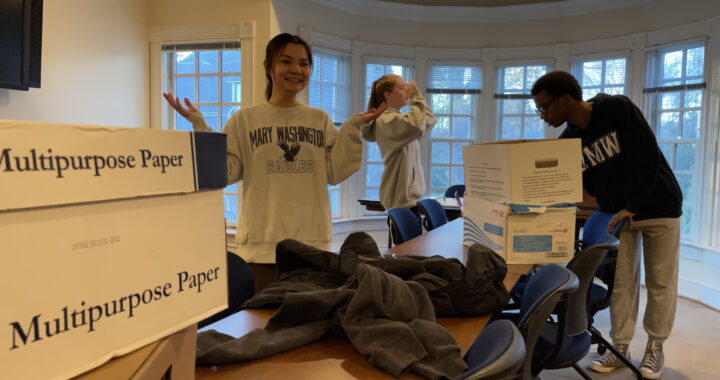Staff Editorial: Avoiding Sterotypings during Black History Month
2 min readFebruary is Black History Month, and UMW is very prepared.
There is a schedule full of events that are supposed to speak to Mary Washington students of all races about the history and culture of the black community.
And seeing as last year’s freshman class comprised of 3 percent black students (according to the Princeton Review), this is definitely a month that is taken very seriously here.
However, on the list of events for the month-long celebration, which has been posted around campus and can be found on the University’s website, there are a few events that are disconcerting and, to be honest, a little embarrassing.
For instance, an event called “Black Facts Jeopardy” took place last Monday. It’s ridiculous that the student community at large would need a game of Jeopardy to learn facts about a different race, just to try to bridge the differences between that race and others represented on this campus. In choosing such a title, what may have been a well-intentioned session was met with little seriousness and a lot of shaking heads.
And who didn’t cringe a little when they heard of the Feb. 26 “Plantation Dinner” that is to take place at Seacobeck? Granted, it may be an entertaining, historically rich evening highlighting the major cultural developments that occurred in the black communities living during slave-times. But to tag an event with such a name demeans the event, its purpose, and our attempts to showcase the relevance of this period in our contemporary society. If we keep this up, Black History Month at UMW may soon run the risk of being seen as a joke, and a very bad one at that.
We realize that it was obviously not the intention of the University or the James Farmer Multicultural Center to be offensive or divisive. Indeed, we are lucky to attend a university that considers cultural awareness such an important issue. But we clearly need to work on our delivery.
Many of us have likely seen the stone block on William Street that Fredericksburg’s wealthy once stood upon to auction off slaves and other goods. It’s a chilling relic from a dark spot in the history of our town and country, all the more so because of its simplicity. And it is as powerful every month of the year, not just February.
Bearing witness to the struggles of our nation’s black community and highlighting its significant contributions need not be stone-faced and solemn. Still, we must be careful not to reinforce offensive and untrue stereotypes, which are capable of sullying even the best of intentions. And really, we can do better than “Black Facts Jeopardy.”


